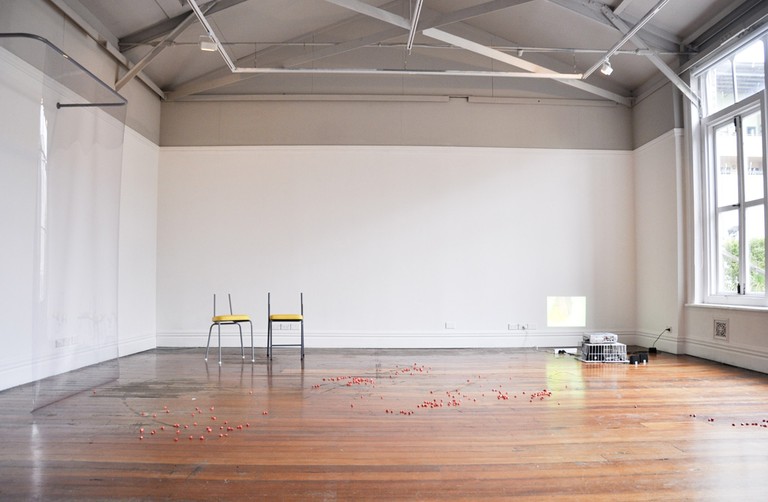Exhibition Essays
Concentrate On What You Are Doing
June 2012
The passage is what you are doing
Max Trevor Thomas Edmond
It is said that life is like a book. Each day a new page, each page new words, increasingly difficult to read.
But much more it is like a display stand, holding many books.
They appear identical, their covers are all the same fleshy colour, they are the same shape, same glossy finish, they all say the same things. But it is not until you attend each one, invest it with your time, that you notice its idiosyncrasies, its minor, but important, unique imperfections. That in fact these two differ in their opinions, attitudes, interests, or in the way they express them. That they hold different positions in the rack, aim in different directions, appeal to different customers. That no book is just a book.
It is the rack that draws attention to, or provides the basis for other objects, actions, patterns. It's simple, vertical structure appears, at first, restricting, but without such a monument, would you see anything else in the room? What was once a blank, empty room; what was once simple, abstract matter, becomes now an environment, an image, a game, a language.
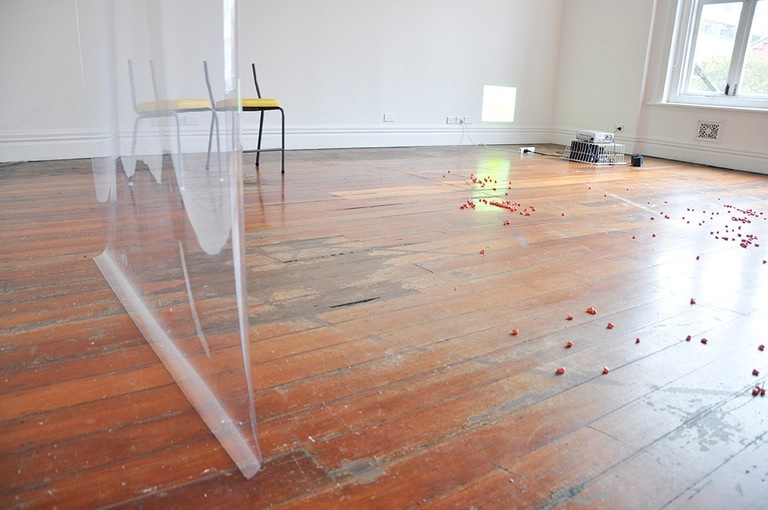
You are directed about the room by its objects, its contents. Your presence is acknowledged, and valued.
The shapes communicate you to one another. The colours possess your moods.
You are taken care of. Anything you might need is around you, you can bathe, rest, you are entertained.
Nature is reassimilated into your environment. For your moral comfort. You are encouraged to maintain your social rituals, as the core of your experience of being; by which you navigate the playing field.
Without these habitual foundations of social life, you will lose your way, you will lose your ties to your existential essence.
These are what keep you contained, protected, comfortable. The objects in your environment are there to remind you, to guide you.
You must be able to recognise, to read these objects. They can tell you where you are, where you are going, and how to get there.
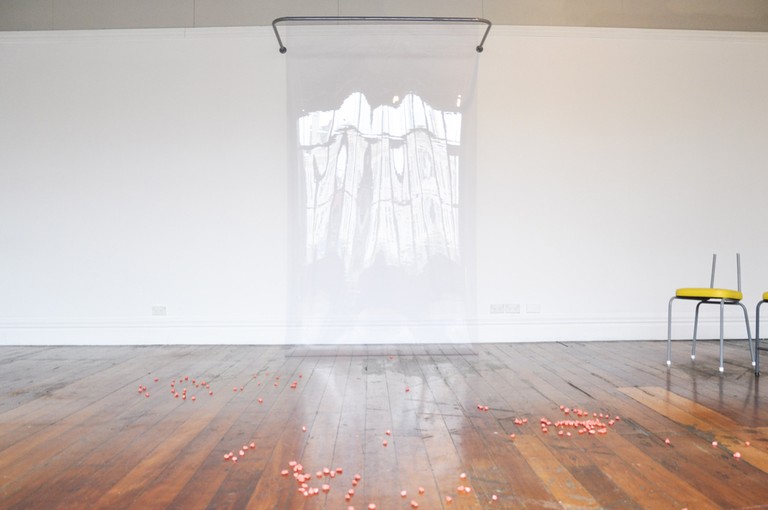
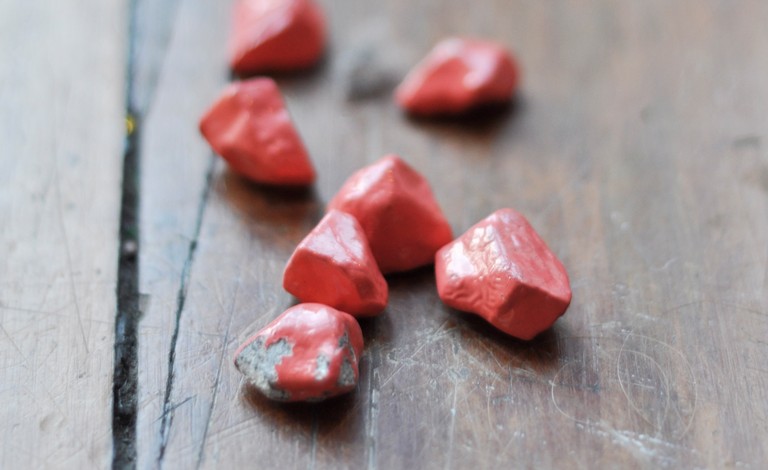
Every stone you see is a part of it. No stone is just a stone. Each one has meaning. Turn each stone. Read each stone. Assign them categories. To which other objects do they belong? Or connect? Which other objects allow, extend, or alter their meaning? No stone too small.
Treat yourself thus: a stone, never too small, always at least significant. Your presence is acknowledged, and valued, regardless of the way this acknowledgement is expressed.
People will feign distaste, disgust, disapproval, disagreement. Ultimately all they want is to help you, push you. Communicate you to one another. Their comments are obstacles for you to read and progress beyond. Invitations to prove yourself.
You have the power to manipulate the things around you, but do you use it? You have everything you need to take complete control of any situation, and your satisfaction will come: from the respect you have for its certain rules and prohibitions.
It will come down to, or become, your natural response, to a colour: yellow? or a movement, a sound; and how you follow up on that response.
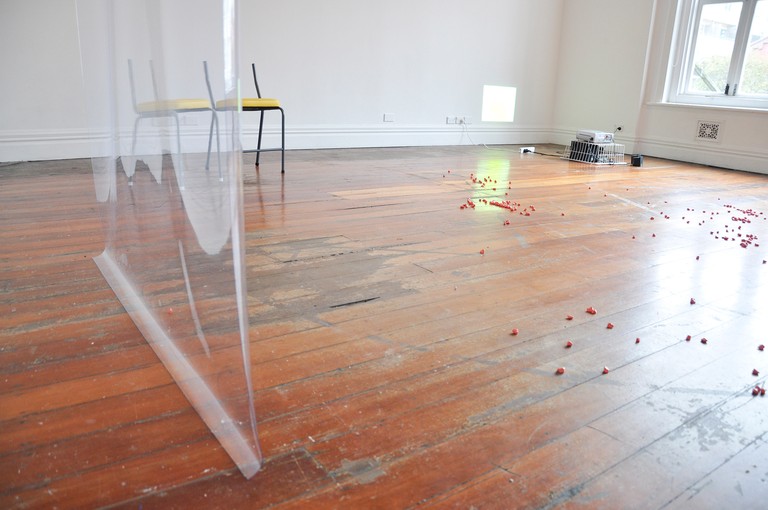
You must build these responses into habits. Habits are knowledge, and knowledge is power. The habits you build help to define your self in the eyes of others. They need to see how you will approach their challenges. If your habits are weak or uncertain, you become a target. You will have your chair pulled from under you, repeatedly kicked across the floor, your expressions distorted or rejected, by the unsettlingly clear veil placed before you.
It is always there, its glassy surface often subtle. Though it is in front of your eyes, it allows you to see. Without its non-presence, you would know nothing else. It can cleanse the passages of light which reach you, through the labyrinth of other obstacles.
In moments of weakness, it re-emerges, imposing itself on your being, using your own perceptions to throw you off balance. But its intentions are benevolent, it is its duty to keep you in your place.
If you respect its power, its necessity, its will be rendered
malleable, and fade into the foreground.
If you fall into undesirable patterns or sequences, its cold restraint will be provoked. You must approach such restraint in the language of embrace, for you need its embrace in return. Read its embrace, speak forth to it with your own, feel its breath commanding your own.
Think about breathing. Do you know how to breathe? And does that knowledge allow you to do everything you can do? Know everything you can know?
That it has become a habit, that you do it without thinking — does it keep you alive?
Every breath you take is a part of it. No breath is just a breath. Read each breath. Each breath is another word on the page of the day.
To which other objects, or subjects, do they belong, extend? What claims possession of your exhalation? Where can it be traced once the sound dissipates?
Follow each breath, each stone, each object, taking your mind in new directions. To places once thought impossible. To the horizon, but to only one at a time. The completely open space, encircling expanse, exceeds your powers of comprehension, possesses less potential than the passage. The passage is progression, projection.
The passage possesses a goal; the goal possesses an achievement.
To take a path is to concentrate your desires, to clarify your possibilities.
The breath is too free, is subject to too many variables. The breath has no rules, no ritual, no path, no goal. In being everywhere, it is not anywhere. In being free, it is slave to freedom. It is too free to progress, all potential and no possibility.
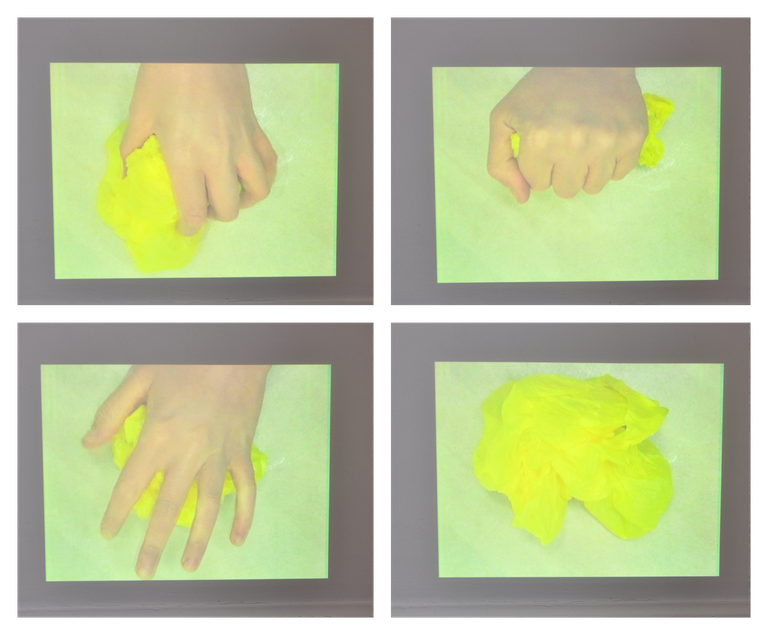
Yet it resounds throughout your environment, infiltrating your every decision in small doses.
You are the passage that gives the breath purpose. Without you, it would not be breath, it would not even be air. It would not even be.
It would fall in the woods, but make no sound and stimulate nothing,
no one.
It is in small doses that you need the breath, that you need freedom.
The word freedom is designed around this structure. If it were intended to mean an absolute freedom, even freer than the breath, it would not be enclosed in a word. This tells you that true freedom is conditional.
That you must be free, but you must also be free from freedom.
